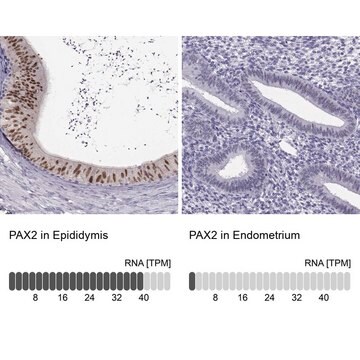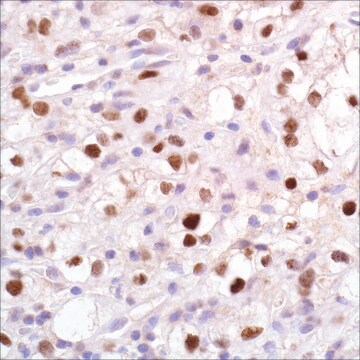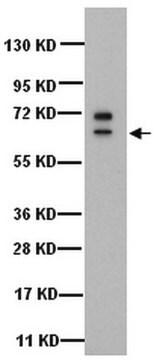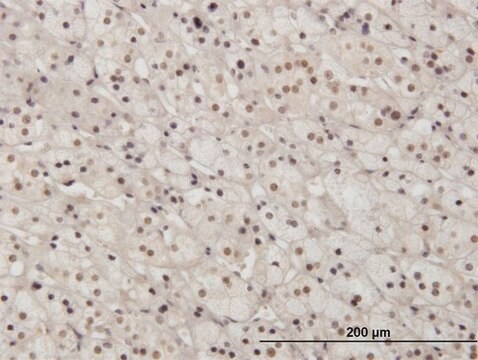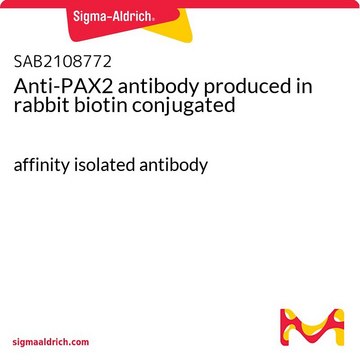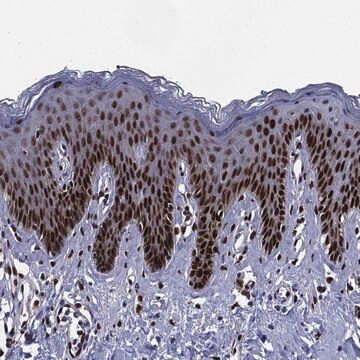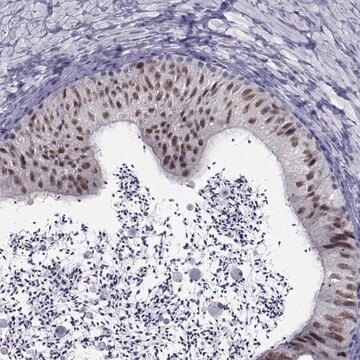MABE902
Anti-Pax-2 Antibody, clone 4C2.2
culture supernatant, clone 4C2.2, from mouse
Sinónimos:
Paired box protein Pax-2, Pax-2
About This Item
Productos recomendados
origen biológico
mouse
Nivel de calidad
forma del anticuerpo
culture supernatant
tipo de anticuerpo
primary antibodies
clon
4C2.2, monoclonal
reactividad de especies
human
técnicas
western blot: suitable
isotipo
IgG2bκ
Nº de acceso NCBI
Nº de acceso UniProt
Condiciones de envío
wet ice
modificación del objetivo postraduccional
unmodified
Información sobre el gen
human ... PAX2(5076)
Descripción general
Especificidad
Inmunógeno
Aplicación
Epigenetics & Nuclear Function
Nuclear Receptors
Calidad
Western Blotting Analysis: A 1:500 dilution of this antibody detected PAX-2 in 10 µg of A431 cell lysate.
Descripción de destino
Forma física
Almacenamiento y estabilidad
Handling Recommendations: Upon receipt and prior to removing the cap, centrifuge the vial and gently mix the solution. Aliquot into microcentrifuge tubes and store at -20°C. Avoid repeated freeze/thaw cycles, which may damage IgG and affect product performance.
Otras notas
Cláusula de descargo de responsabilidad
¿No encuentra el producto adecuado?
Pruebe nuestro Herramienta de selección de productos.
Código de clase de almacenamiento
10 - Combustible liquids
Clase de riesgo para el agua (WGK)
WGK 1
Punto de inflamabilidad (°F)
Not applicable
Punto de inflamabilidad (°C)
Not applicable
Certificados de análisis (COA)
Busque Certificados de análisis (COA) introduciendo el número de lote del producto. Los números de lote se encuentran en la etiqueta del producto después de las palabras «Lot» o «Batch»
¿Ya tiene este producto?
Encuentre la documentación para los productos que ha comprado recientemente en la Biblioteca de documentos.
Nuestro equipo de científicos tiene experiencia en todas las áreas de investigación: Ciencias de la vida, Ciencia de los materiales, Síntesis química, Cromatografía, Analítica y muchas otras.
Póngase en contacto con el Servicio técnico